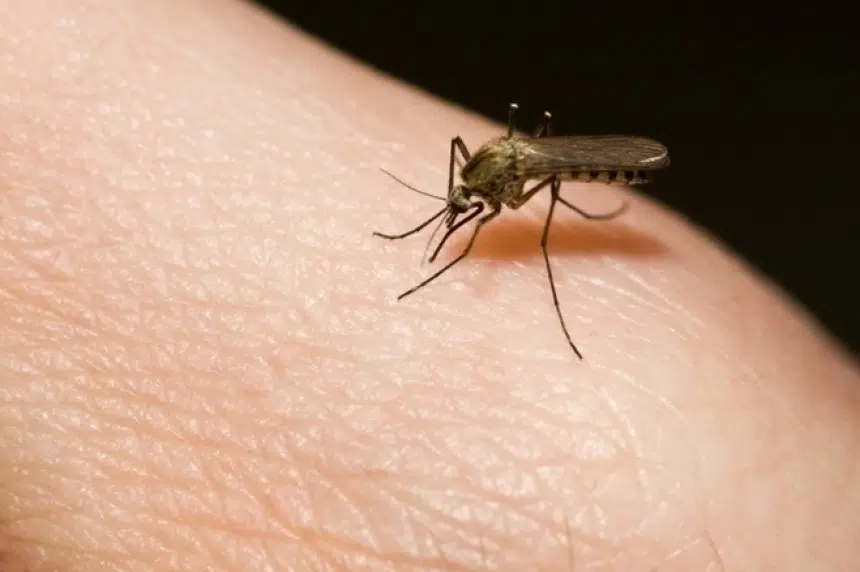Those planning on enjoying the outdoors this summer are once again being warned about West Nile virus.
The province is urging people to take precautions to prevent contracting the virus this summer.
West Nile is transmitted through infected mosquitoes, although eight out of 10 people who contract the virus don’t even know they have it.
In more serious cases, known as West Nile virus neuroinvasive disease, the virus can present symptoms such as high fever, headache, loss of consciousness, confusion, and muscle weakness. These are caused by inflammation of the brain or spinal cord and can be fatal.
Only one in 150 people who get the virus develop neuroinvasive disease, however. The elderly and anyone with immuno-compromised conditions are most at risk.
Dr. Denise Werker, Saskatchewan’s deputy chief medical health officer, said there is a specific type of mosquito, culex tarsalis, that carries West Nile virus. Culex tarsalis mosquitoes are most active from dusk until dawn.
“We’ve not had actually any detection of the culex tarsalis mosquitoes,” said Werker, who added it’s still too early in the bug season to detect any of that variety. “The risk of West Nile virus increases as the summer progresses and that relates to the number of generations of mosquitoes as well as to the amount of heat.”
Since there isn’t a vaccine or cure for West Nile virus, the best way to prevent the virus is simply to take precautions to not get bitten. Using repellent, wearing long-sleeved clothes and getting rid of any standing water in your yard can reduce exposure to mosquitoes.
One of the most important things, according to Werker, is using proper repellent, especially for children.
“Insect repellents that contain deet are the ones that we recommend,” Werker said, adding that insect repellent should not be used on children under six months of age. “There are insect repellents that are seen to be natural, that have oil of eucalyptus or citronella, and those actually are not recommended for children under a certain age.”
Since repellent shouldn’t be used to protect infants, Werker said the best way to avoid mosquito bites is to dress children in long sleeves, and use netting to cover car seats.
The southeast area of the province is most at risk of West Nile virus since it is considered the province’s hot zone. However, Werker added that climate change is extending that hot zone boundary further north.
West Nile virus was first identified in Saskatchewan in 2002. In 2018, there were three cases of severe infections of the virus, including one death.
More information about the virus — including symptoms, prevention and surveillance reports — can be found here.











